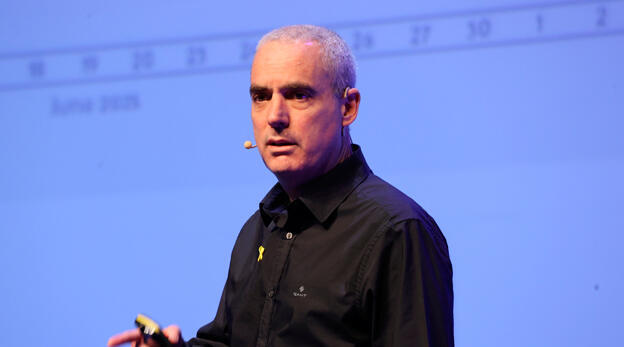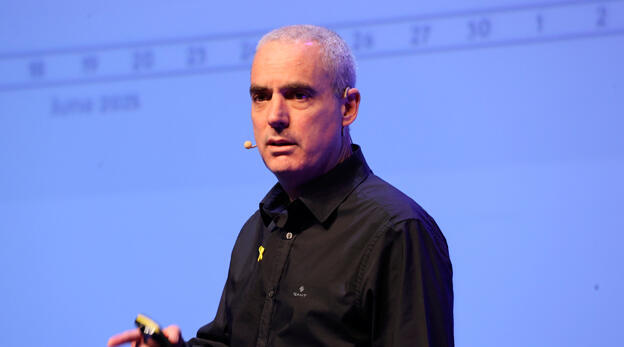
National Economic Conference
"Ending the conflict with Iran and removing other regional threats could be a real game changer for Israel’s economy"
Danny Yardeny, head of the Nostro Management Department at Bank Leumi, added at the Calcalist and Bank Leumi National Economic Conference: "What happened in the capital market during just 12 days of fighting is remarkable by any standard."
"If I had told you a month and a half ago that within days we would be engaged in a campaign against Iran, that powerful missiles would land here, that we would spend endless hours in shelters, that the home front would suffer heavy losses, that the economy would stagnate, and yet the capital market would soar and break records, you would have thought I’d lost my mind," said Danny Yardeny, Head of Nostro Management at Bank Leumi, speaking at the Calcalist and Bank Leumi National Economic Conference.
"I can tell you that even after more than two decades in the local capital market, I was very surprised by the market’s positive performance," he continued. "The magnitude of the rally caught me off guard too. What happened in the capital market during just 12 days of fighting is remarkable by any standard."
Yardeny illustrated his point by showing the sharp decline in Israel’s credit default swaps (CDS), the country’s risk premium, which dropped significantly in just 12 days. "You can see the sentiment before the attack, and how, after about two days, when it appeared that the Israeli offensive was achieving real military success, investor sentiment flipped. This is a major vote of confidence by investors in Israel’s ability to move forward," he said.
Speaking about the TA-125 index, he noted: "It has risen by about 15.5% in the three weeks since the conflict with Iran began. That’s unprecedented. Some sectors have jumped more than 20%."
"In the bond market, yields have fallen by 0.5% since the start of the conflict. Put simply, anyone who bought Israeli government bonds with a 10-year maturity before the escalation has gained a 4% return in just three weeks," he explained. "And perhaps the most talked-about topic lately is the shekel, which has climbed to its strongest level in three years, appreciating nearly 8% against the currency basket. The shekel is now at its highest level since August 2022. All of this indicates that we have come through a significant confrontation with Iran with notable economic resilience."
Yardeny added: "Successfully ending the conflict with Iran and removing other regional security threats could be a real game changer for Israel’s economy."
However, he cautioned that for this market strength to be sustainable, Israel still faces important challenges: safeguarding security independence; integrating all communities into both national defense and the workforce; investing in post-war rebuilding and growth drivers; and maintaining socio-political stability. "The good news," he concluded, "is that unlike the Iranian threat, these challenges depend entirely on us."














